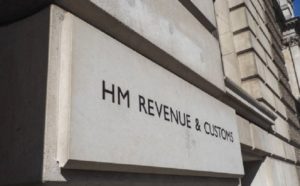HMRC’s tax evasion crackdown means higher penalties for late payers, with over 500 new officers as part of measures to close the £44bn tax gap.
A shift to ‘Making Tax Digital’ will come with higher penalties for late payment from April 2025 in a two-tier penalty system while under the new rules, a taxpayer owing £25,000 income tax will owe over £28,000 after four months.
Charlene Young, senior pensions and savings expert at AJ Bell, said a tax penalty hike will add further admin and cost pressure to small businesses:
She said: “One thing that’s always found on our Budget bingo card is a crackdown on tax evasion. It’s no surprise given the £44 billion of unpaid tax due to HMRC, a figure more than double the level five years ago according to the Spring Statement documents.
“In addition to measures to tackle non-compliance announced in her October budget and plans to pay tax whistleblowers a share of tax they help to recover, the chancellor has committed to fund over 500 extra compliance officers and new technology to aid automated recovery.
“With taxpayers facing hours on hold to HMRC in recent years, or even being chucked off a waiting call, it’s fair to assume that the push to digital and increased fines with tighter timescales will be met with a degree of cynicism.”
Since April 2022, all VAT-registered businesses have been required to keep digital records and file returns through MTD-compatible software. The requirement is being extended to income tax for businesses, landlords and the self-employed from April 2026 for those with ‘qualifying income’ over £50,000, and April 2027 and 2028 for incomes over £30,000 and £20,000 respectively.
“Buried in the Spring Statement documents are details of the new fines from April 2025 as new taxpayers join the MTD system.
“Under the current self-assessment filing system, taxpayers face a penalty if you miss the deadline for submitting a return or paying your bill. Penalties start at £100 if a return is up to three months late, with added fines the longer the return goes unfiled and tax unpaid.
“For unpaid tax, a 5% fine applies after 30 days, with an extra 5% after six and twelve months. You’ll also be charged interest on late payments.”
Under MTD, late payment penalties for VAT taxpayers and income taxpayers will be 3% of the tax outstanding where tax is overdue by 15 days; plus 3% where tax is overdue by 30 days; plus 10% a year where tax is overdue by 31 days or more.
Young further said: “A self-employed person owing £25,000 income tax will likely find themselves owing £26,913 after 4 months with tax or interest. Under the new MTD rules this could be over £28,000, an increase in fines of around 6%. It’s estimated that the increased fines could bring in £370 million by 2030.
“Closing the tax gap should be a priority for HMRC, but the changes come against a backdrop of poor service levels and at a time when small business are gearing up for soaring tax and wage bills from April. There’s also the question about the four million taxpayers with income below the £20,000 threshold and how the fines will be enforced. Also included in yesterday’s announcements were plans to harness AI to aid with automated debt recovery.”





